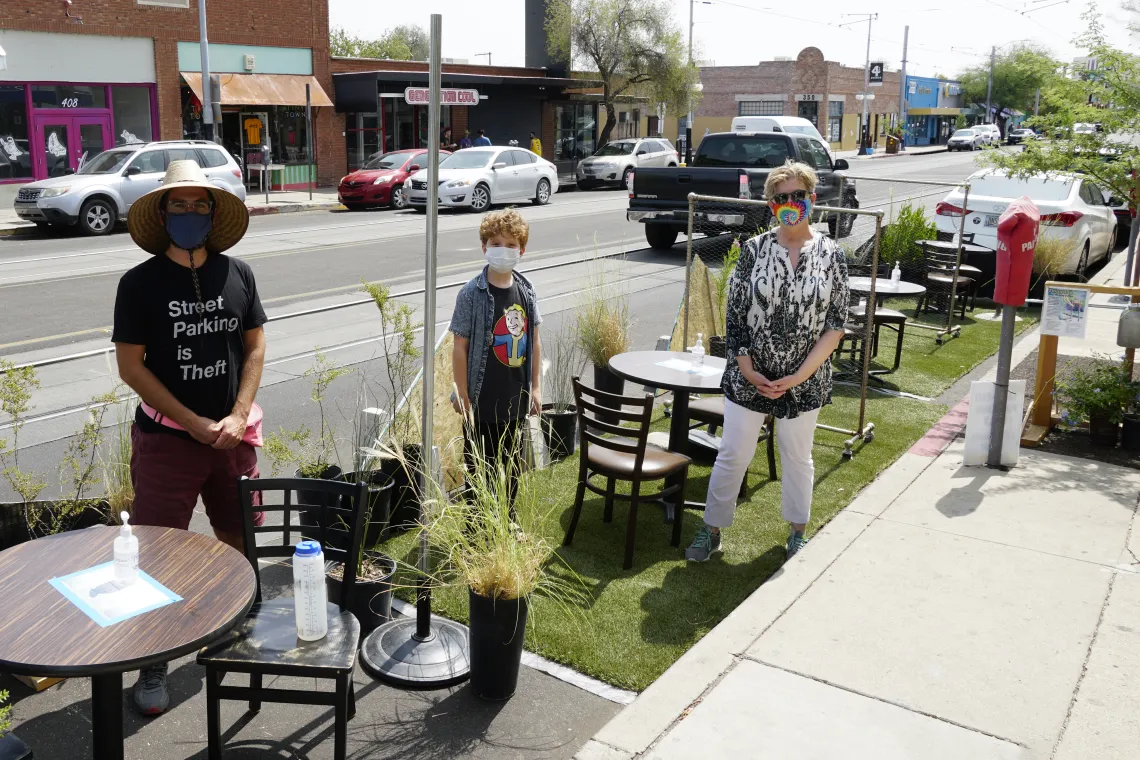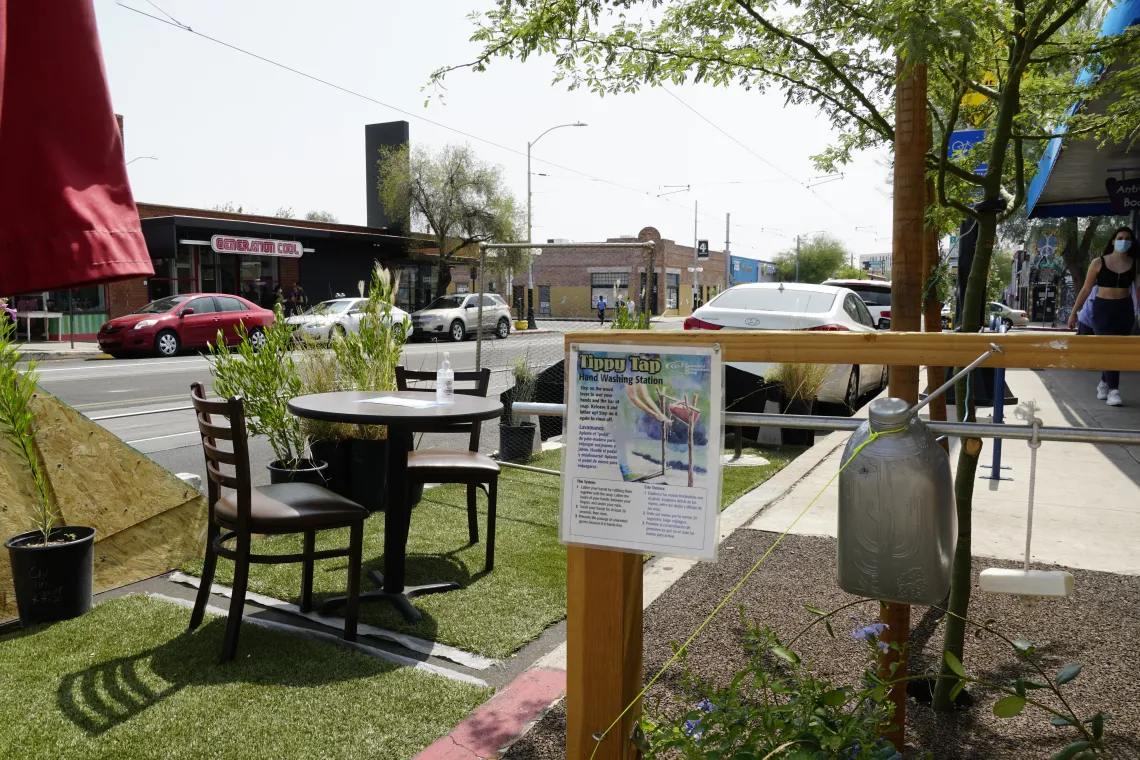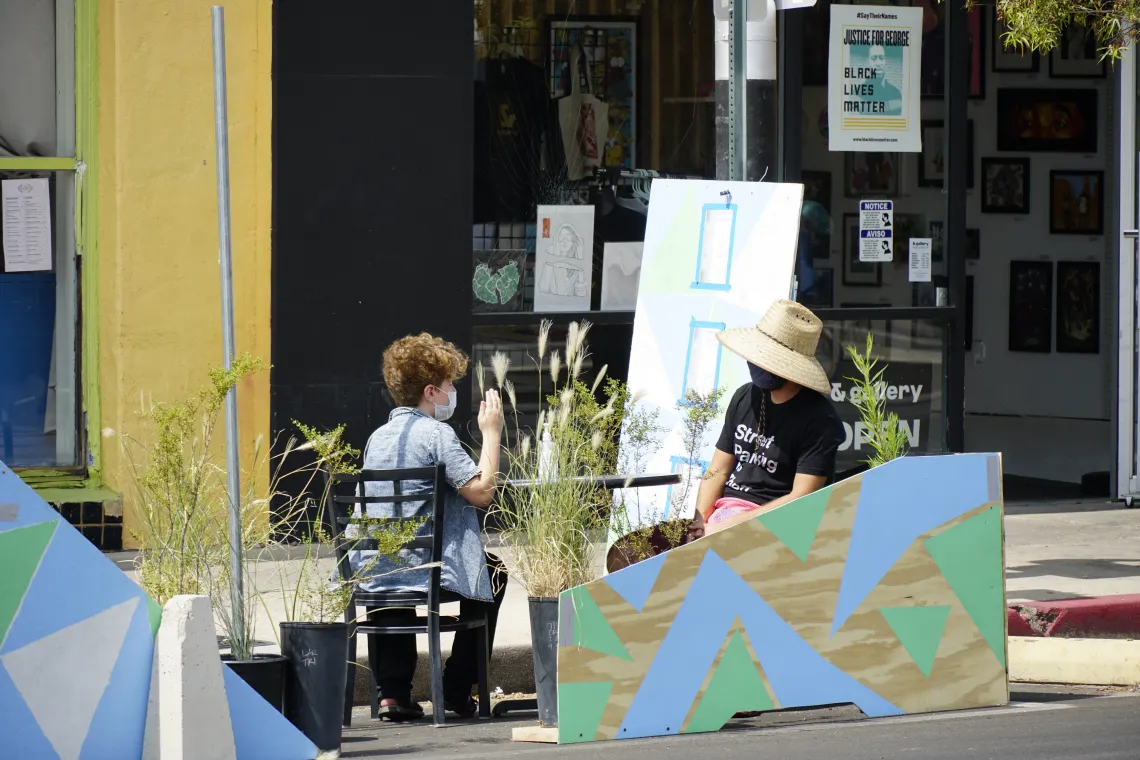Park(ing) Day 2020: Physically Distanced but Socially Connected
This annual worldwide event encourages landscape architects, community members, and students to transform metered parking spaces into temporary parklets.

Ramzy Bejjani '21 MLA (left) and Dean Nancy Pollock-Ellwand (right) stand with a Park(ing) Day visitor outside Café Passé on Tucson's 4th Avenue.
Photo by Simmons Buntin
Students from CAPLA's Master of Landscape Architecture and Bachelor of Landscape Architecture programs worked together to design and build a pocket park for Park(ing) Day 2020. MLA students have created a number of Park(ing) Day installations on and off campus since the City of Tucson began participating in 2008, but this year marks the first for CAPLA's inaugural cohort of BLA students.
The event necessitates a great deal of planning and coordination between students and local officials even during a typical year. The students' enthusiasm and previous experience with the event helped them overcome the unique challenges they faced while building a temporary parklet during a pandemic.
"The twin devils of COVID and digital fatigue were our largest hurdles. Keeping everyone on the same page remotely and outside of school hours was a struggle, but we made sure to start the planning process before school started to give us time to compensate. Honestly, once we decided that we wanted to do an installation that showed how space could reinforce social distancing and sanitation but still be comforting, the layout designed itself," says CAPLA American Society of Landscape Architecture (ASLA) student chapter co-president Ramzy Bejjani '21 MLA.

The students' Park(ing) Day 2020 installation was expanded to cover three parking spots instead of one. A hands-free Tippy Tap Hand Washing Station was provided by Watershed Management Group .
Photo by Simmons Buntin
The students coordinated closely to pull the event together. Emma Nakpairat '24 BLA designed the event flyer and Patricia Cabrera '23 MLA worked with the City of Tucson to secure the parking spaces on historic Fourth Avenue, making sure the permitting was in place. Bejjani calls to ASLA student chapter co-president Paige Anthony '22 MLA and secretary Alizabeth Potucek '22 MLA "the real MVPs," and Gabrielle Spickard '21 MLA, Rebecca Shaw '21 MLA and Christian Aguilar '23 MLA also participated.
"It was a fun challenge that activated our creativity as we kept the safety of the users in mind," says Aguilar. "I spoke with the owner of Café Passé and she stated that she would have liked to keep the parklet permanently and would also love for other business to have a similar space for their customers. Parklets reduce car traffic, are pedestrian friendly and in these times of COVID-19 make it possible for people to go out and support businesses safely."
The student group received materials and labor support from a number of local businesses and organizations. Café Passé, which is owned and operated by CAPLA alumna Jenny Rice '19 BS Sustainable Built Environments, hosted and provided all of the furniture for the space. The Pima County Native Plant Nursery loaned the plant materials and the Watershed Management Group lent its Tippy-Tap Handwashing Station.

The ASLA Student Chapter provided hand sanitizer and laid out the space with plenty of room for distanced socializing. Visitors to the parklet were asked to wear masks.
Photo by Simmons Buntin



